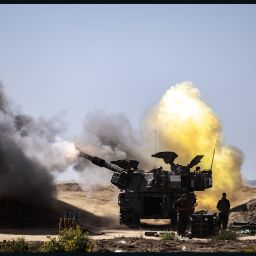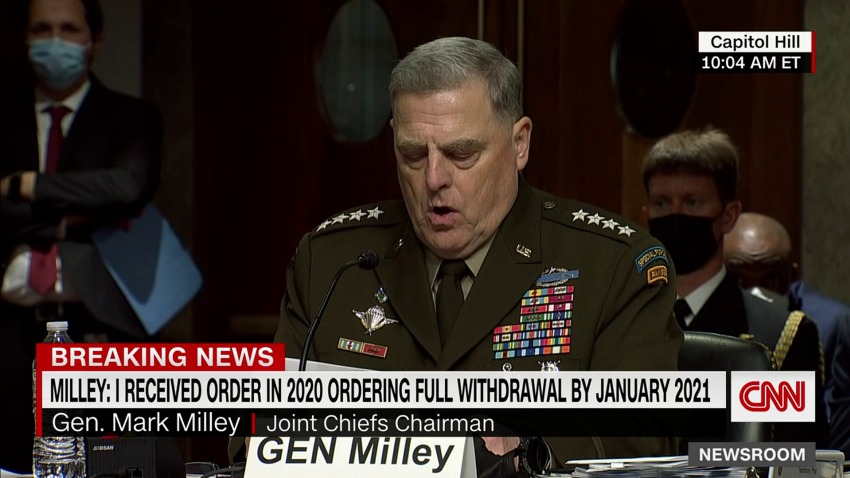White House press secretary Jen Psaki would not say which military advisers suggested a full US troop withdrawal from Afghanistan, attempting to clarify that President Biden didn’t go against advice from advisers by ordering a full US withdrawal from Afghanistan.
Psaki’s comments come after comments the leader of US Central Command, Gen. Frank McKenzie, made during congressional testimony on Tuesday discussing the withdrawal from Afghanistan.
McKenzie said that he recommended the US keep 2,500 troops in Afghanistan, a recommendation Gen. Mark Milley said he agreed with. The testimony appears to contradict President Joe Biden’s claim to the contrary during an interview last month.
“I also had a view that the withdrawal of those forces would lead inevitably to the collapse of the Afghan military forces, and eventually the Afghan government,” McKenzie said.
Psaki said there was a “range of viewpoints” presented to the President from his military advisers on how to proceed in Afghanistan, but even those advisers who did suggest keeping 2,500 troops in Afghanistan in the short-term recognized that would not have been a long-term strategy as keeping troops would have let to increased conflict in the country.
“I would note today in the testimony that was given by Secretary Austin, by General Milley, they made clear, Secretary Austin specifically said, if you stay there at a force posture of 2,500, certainly you’d be in a fight with the Taliban, and you’d have to reinforce,” Psaki said at Tuesday’s White House press briefing.
“It was also clear, and clear to him, that that would not be a long standing recommendation, that there would need to be an escalation, an increase in troop numbers, it would also need, it would also mean war with the Taliban and it would also mean the potential loss of casualties. The President was just not willing to make that decision. He didn’t think it was in our, the interest of the American people or the interests of, of our troops,” she continued.
Pressed on who specifically suggested that a full withdrawal was the right move, Pskai said those were private conversations and would not name any military leader who advised the President towards a full withdrawal.
“Look, I’m not going to get into specific details of who recommended what, but I can, I would reiterate a little bit of what I conveyed before, which is that there were recommendations made by a range of his advisors, something he welcomed, something he asked them to come to him clear eyed about to give him candid advice,” she said, again reiterating that those recommendations would not be sustainable long term troop numbers.
“There was no one who said, five years from now we could have 2,500 troops and that would be sustainable. And I think that’s important for people to know and to understand,” Psaki said.
The press secretary said the conversation at the time was part of a risk assessment, but ultimately it is up to the President to make strategic decisions and Biden decided it was time to end America’s 20-year war in Afghanistan.
“These conversations are about a range of options, about what the, the risk assessments are about every decision. And of course, there are individuals who come forward with a range of recommendations on what the right path forward looks like. I’m not going to detail those from here, they’re private conversations and advice to the President of the United States. Ultimately, regardless of the advice, it’s his decision. He’s the Commander in Chief,” Psaki said.






